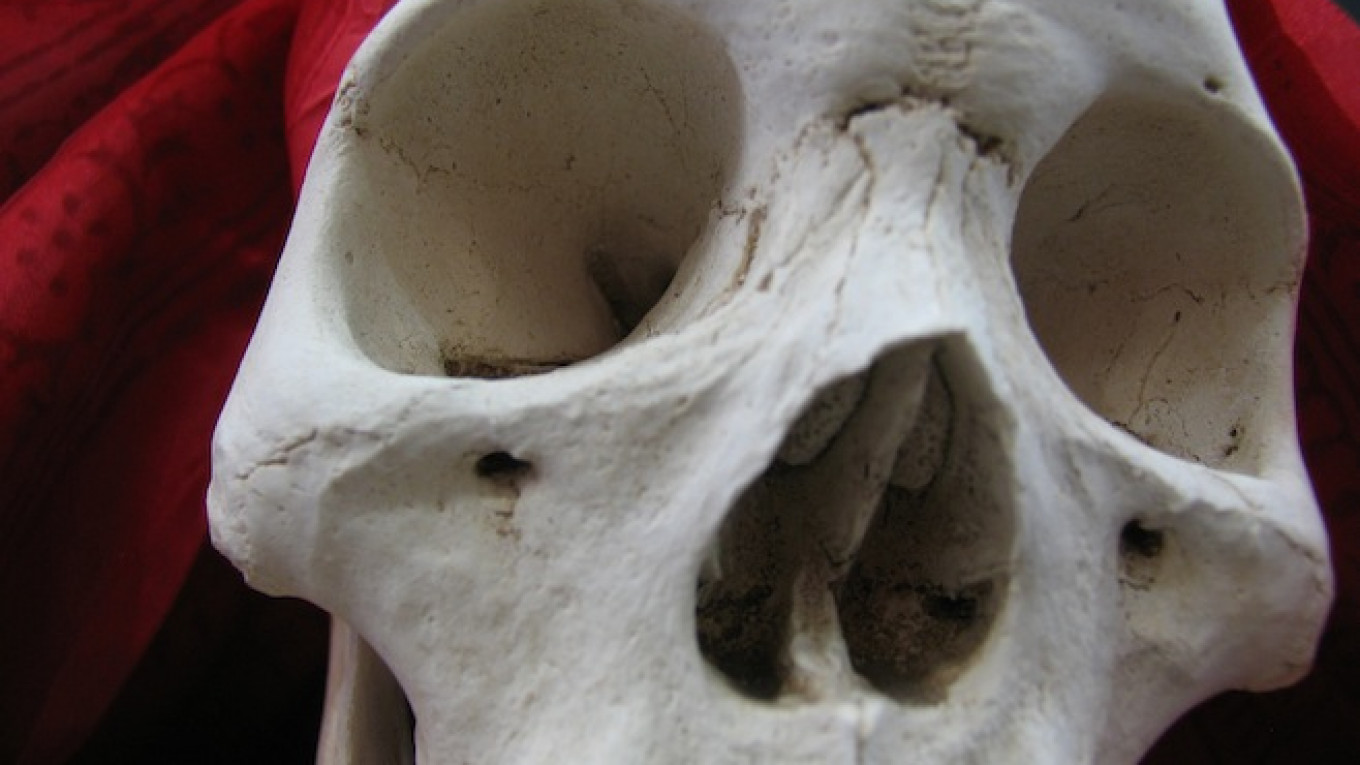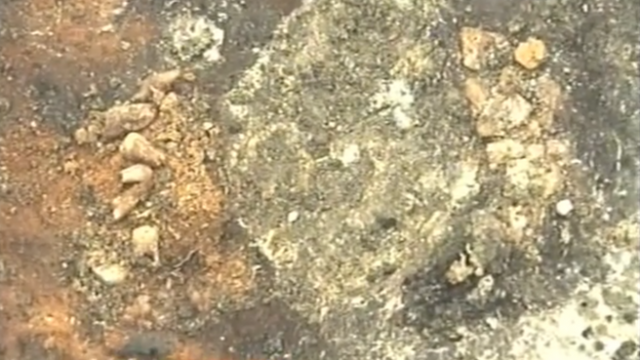St. Petersburg's Kunstkamera Museum of Anthropology and Ethnography has added to its collection a 36,000-year-old human skeleton, a news report said Wednesday.
The head of the museum's anthropology department, Valery Khartanovich, was cited by the Interfax news agency as saying the skeleton was "an extremely rare thing."
The Kunstkamera museum, which boasts more than 180,000 pieces in its collection, studied the skeleton for much of this year, conducting DNA testing to determine that the ancient skull contains "a certain percentage of genes characteristic for neanderthals," Khartanovich said in comments carried by TASS.
Khartanovich said the skull was "almost whole," though offered no further details on its condition.
Currently, the oldest, most complete human skull is estimated to be between 12,000 and 13,000 years old. It was discovered in an underwater cave in Mexico earlier this year, according to National Geographic.
The Kunstkamera museum is Russia's first state public museum, established in 1714 on the order of Peter the Great. The word "kunstkamera" is a Renaissance-era term referring to encyclopedic collections of objects that had yet to be categorically defined, often relics of natural history, geology and archaeology.
The museum is one of the leading research centers of Russia's Academy of Sciences.
A Message from The Moscow Times:
Dear readers,
We are facing unprecedented challenges. Russia's Prosecutor General's Office has designated The Moscow Times as an "undesirable" organization, criminalizing our work and putting our staff at risk of prosecution. This follows our earlier unjust labeling as a "foreign agent."
These actions are direct attempts to silence independent journalism in Russia. The authorities claim our work "discredits the decisions of the Russian leadership." We see things differently: we strive to provide accurate, unbiased reporting on Russia.
We, the journalists of The Moscow Times, refuse to be silenced. But to continue our work, we need your help.
Your support, no matter how small, makes a world of difference. If you can, please support us monthly starting from just $2. It's quick to set up, and every contribution makes a significant impact.
By supporting The Moscow Times, you're defending open, independent journalism in the face of repression. Thank you for standing with us.
Remind me later.






